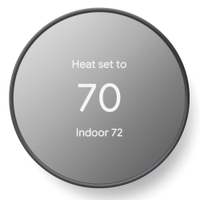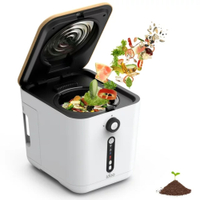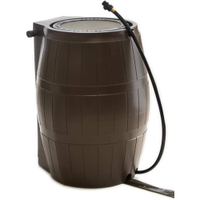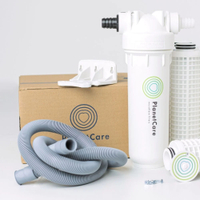These 7 eco-friendly gadgets can save you money and make your home more sustainable
These environmentally friendly upgrades can save you money and make your home more sustainable
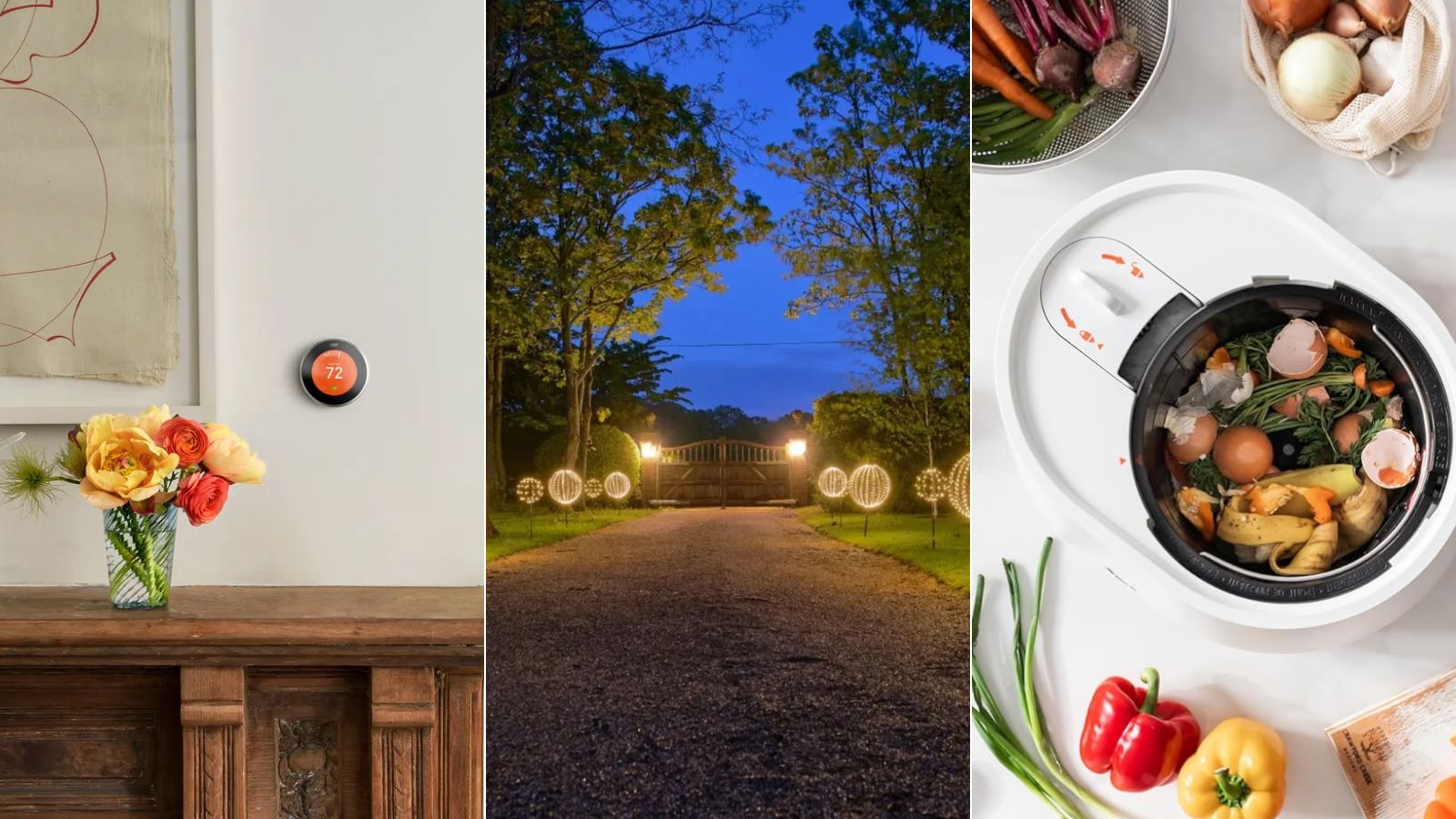

Integrating eco-friendly gadgets into our daily lives is key to promoting sustainable living practices. These innovative technologies offer practical solutions for reducing energy consumption, minimizing waste, and conserving natural resources while still enjoying the conveniences of modern living.
As we strive to be more sustainable at home while also seeking ways to save money, such as by cutting energy bills or choosing eco features that add value to a home, eco-gadgets emerge as the future of eco-home improvements for sustainable living.
Our sustainability and eco-tech experts have shared their top picks for gadgets that support sustainable living without sacrificing convenience, and each one can be so beneficial.
Best eco-gadgets for sustainable living
'While leading a sustainable lifestyle can seem like a daunting task, many helpful eco-gadgets on the market make living greener much simpler,' says Rinkesh Kukreja, founder of Conserve Energy Future. 'These innovative devices allow us to reduce our environmental footprint in thoughtful yet practical ways.'
1. A smart thermostat
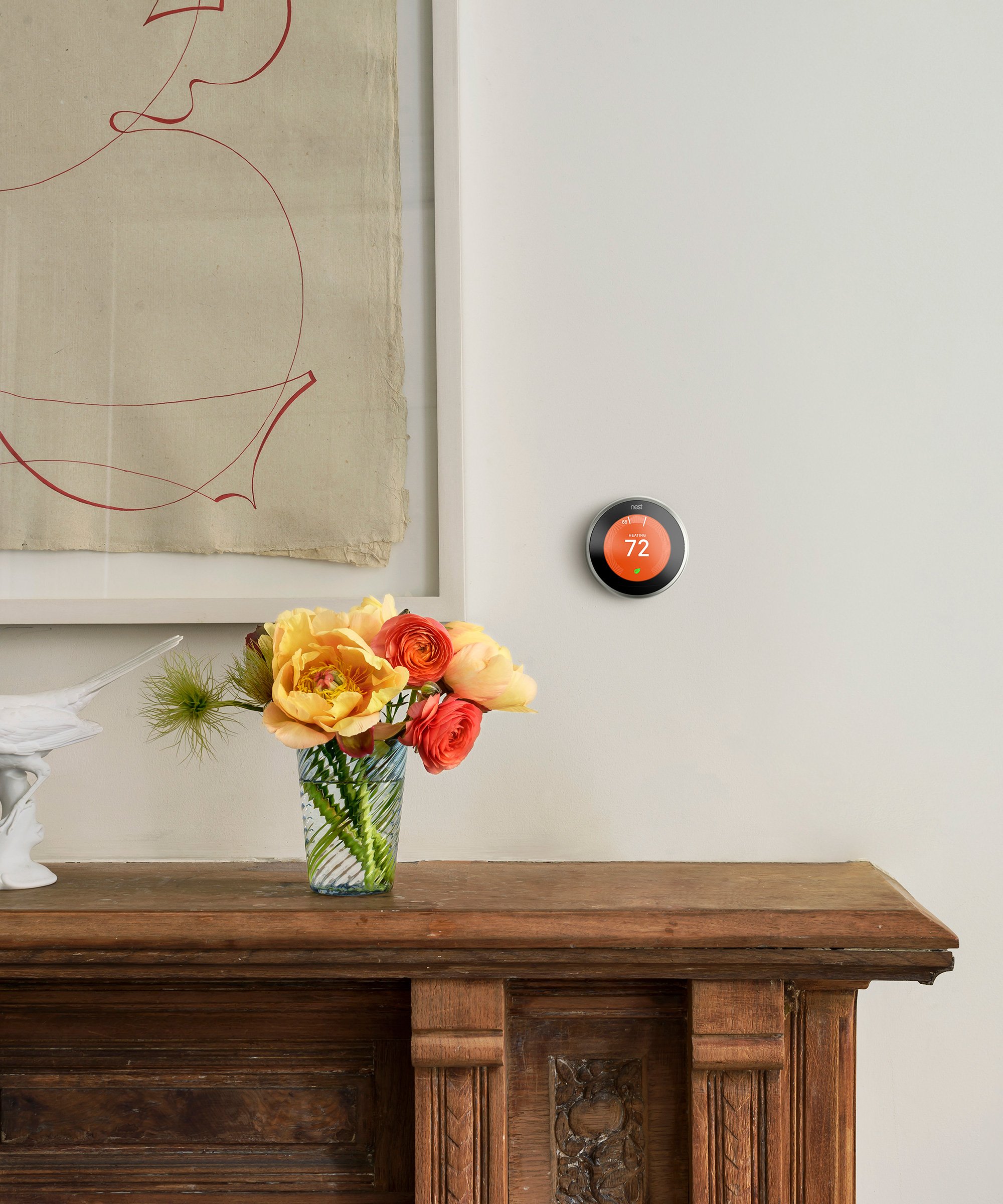
One standout eco-gadget is the smart thermostat.
'These devices learn your heating preferences and adjust themselves accordingly to optimize energy usage while maintaining comfort,' explains Rinkesh Kukreja. 'They contribute to a more efficient and eco-friendly home by passively learning schedules and temperatures.'
Smart thermostats can also be controlled remotely via smartphone apps, allowing you to set temperature schedules that adjust based on the time of day or which spaces need heating and which don't.
'The analytics from these smart devices can help users understand their unique energy usage and make small adjustments that can significantly cut monthly bills and carbon emissions over time,' says Rinkesh Kukreja.
'According to the U.S. Department of Energy, intelligently adjusting temperatures based on occupancy and user preferences can save homeowners up to 23% on annual heating and cooling costs,' says Abid Salahi, Co-Founder of FinlyWealth. 'Imagine the collective impact on energy conservation and carbon emissions!'
With the benefits of smart controls and personalized heating analytics and recommendations, programmable heating types can make it much easier to make your heating more efficient and cut carbon emissions.
Google Nest Thermostat | Was $129.99, now $113.99
Brands like Nest and Ecobee are leaders in programmable thermostats, offering features that contribute to a home's overall sustainability. This smart thermostat comes in four colors and should be used with an Alexa for voice control.
2. Smart compost bins
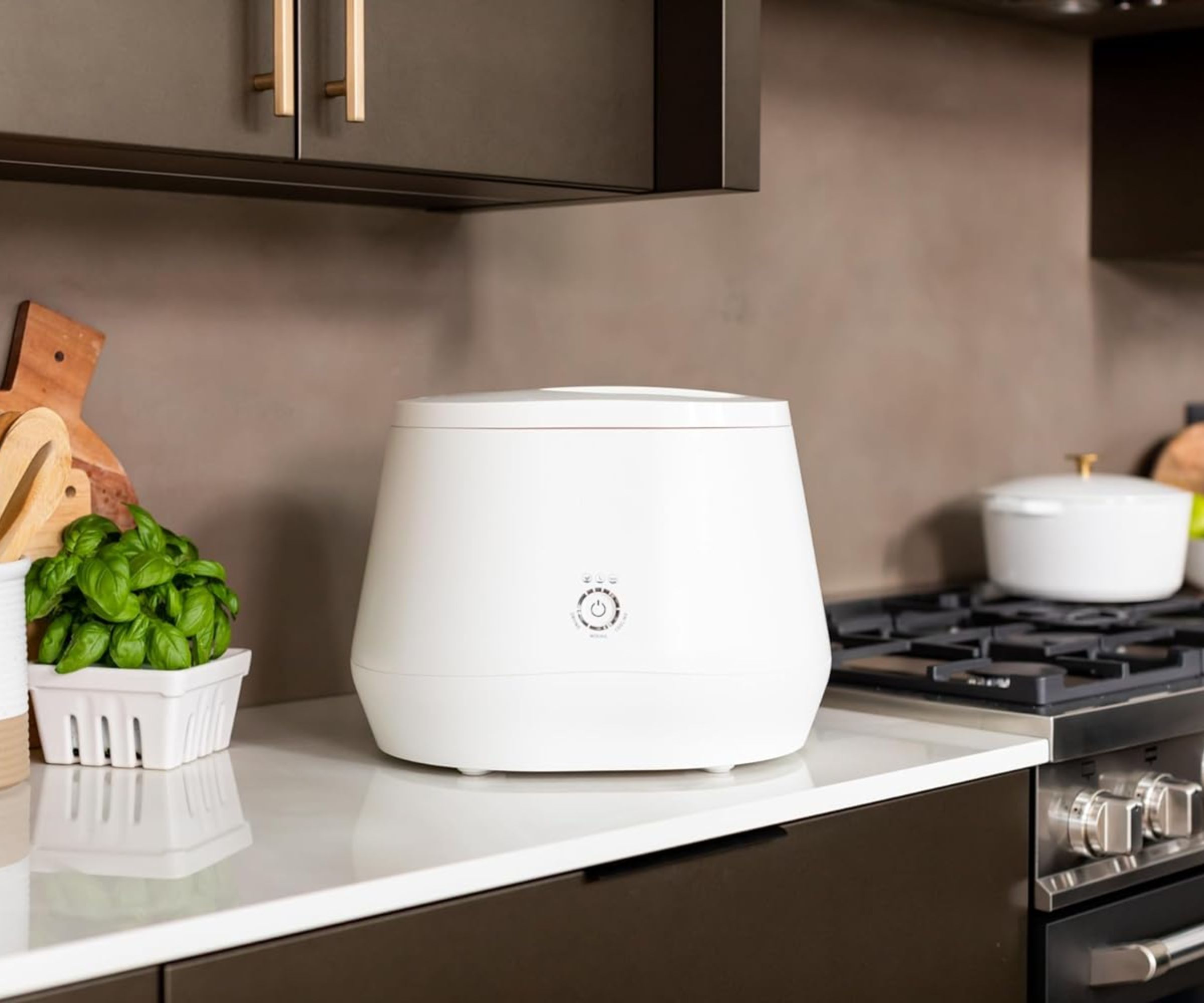
Sustainable living isn't just about energy savings; it's also about reducing waste and promoting eco-friendly practices like composting, where smart composters play a crucial role.
Sustainability blogger at Just Eco, Abhay Gupta explains: 'Smart composters can transform your kitchen's organic waste into compost (black gold) that is nutrient-rich for plants with minimal effort and waste. These eco-gadgets boost the natural decomposition process, cutting down landfill waste and providing a sustainable source of fertilizer for gardens.'
Sensors in the bin monitor temperature, moisture, and oxygen levels to optimize the conditions for microbial activity and decomposition. Many smart composters can also provide data via smartphone apps to allow you to track composting and provide tips and guidance for optimal composting practices.
Smart composters contribute to sustainable living by diverting organic waste from landfills, reducing greenhouse gas emissions, and providing nutrient-rich compost that can be used to support plant growth in your garden.
iDOO Electric Kitchen Waste Composter | Was $699.99, now $299.99
This smart composter has an activated charcoal and carbon filter that prevents unpleasant odors. It also has a self-cleaning mode. With a 3L capacity, this bin can convert organic waste into nutrient-full compost in just six hours.
3. Solar lighting
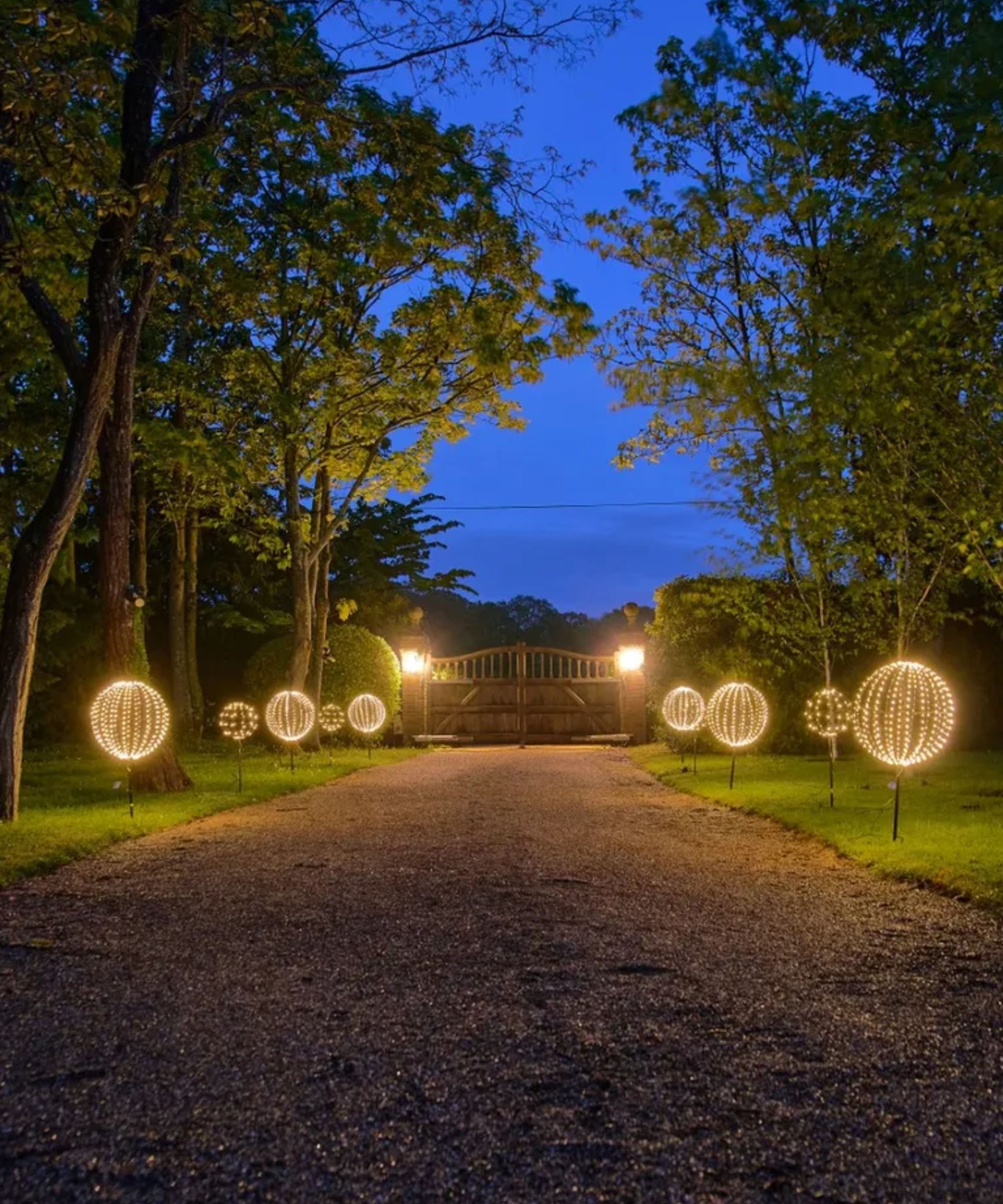
'With the average American household consuming 10,500 kilowatt-hours of electricity annually (U.S. Energy Information Administration), embracing solar-powered chargers can significantly reduce reliance on traditional energy sources,' says Abid Salahi. It's a simple yet effective upgrade for reducing energy consumption.
'One smart device that is needed for every garden pathway and patio would be solar garden lighting,' says Abhay Gupta. 'These lights collect the power from the sunlight during the day, convert it into electricity, and store this energy in built-in batteries for nighttime.'
You can choose solar lights with sensors that automatically turn the lights on at dusk and off at dawn or those with motion sensors, perfect for your garden security lighting. These will lower utility bills and reduce reliance on fossil fuels, but also, since they don't require electrical connections, they can be easily installed virtually anywhere with access to sunlight.
4. An intelligent irrigation system
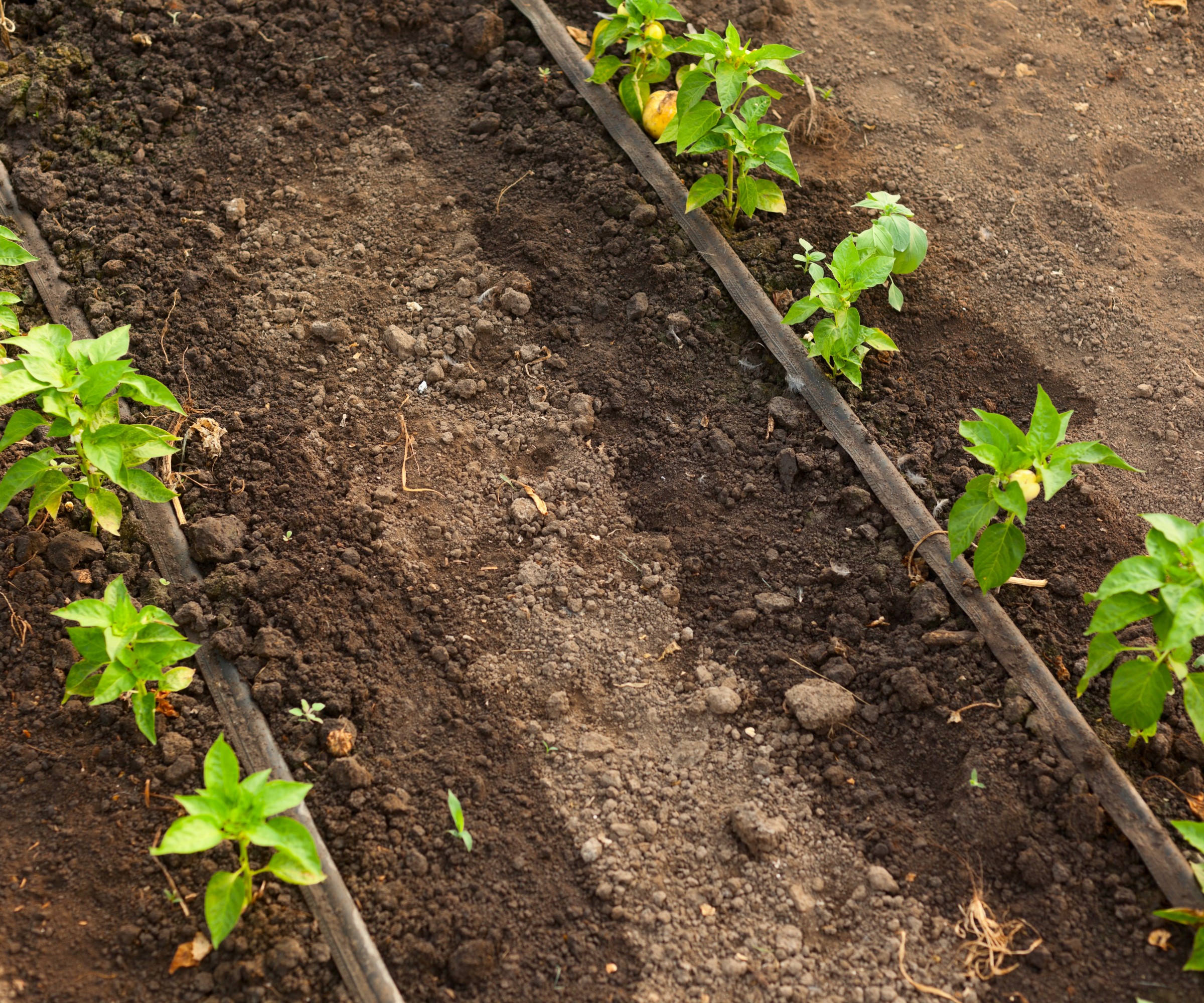
An intelligent irrigation system is next up on our top eco-friendly gadget list.
'This innovative system optimizes water usage based on soil moisture levels and weather conditions. It utilizes real-time data to prevent overwatering, saving thousands of gallons of water annually and reducing the amount of water they use by a remarkable 50%,' explains Abid Salahi.
James Velco, president and CIO of TechNoir CIO Solutions recommends The Rachio smart hose timer from Amazon. 'This smart device can connect to WiFi and use information about the weather in the area to change when to water plants automatically. This is a great way to save money and water.
'As the average household spends $600 per year watering their lawn, the Rachio Smart Timer could save around $300 annually on water bills.'
5. A smart plug
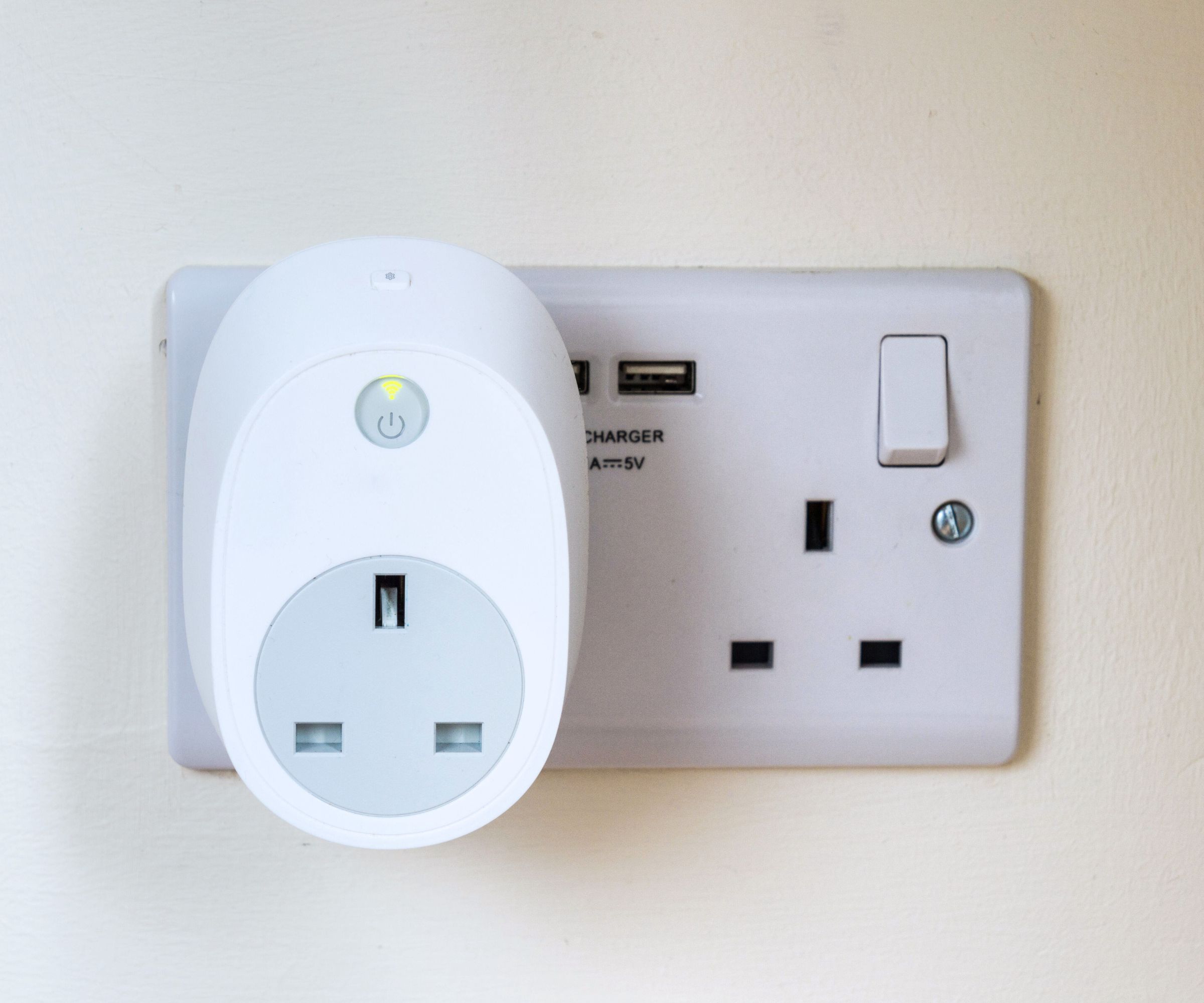
Smart plugs are one of the many smart tech gadgets that can transform your home, and can be used to minimize the energy waste of devices that are plugged into them.
'Homes could save up to $100 a year on power costs by putting smart plugs on things like TVs and computers,' says James Velco. They can also be integrated with smart lighting, thermostats, security cameras, and other smart devices.
A smart plug can cut down on wasted standby power, which accounts for 5–10% of the average home's electricity use. It saves energy by turning devices off completely when they're not in use.
'With smart plugs, individuals can use an app on their phone to control and monitor electronics and appliances from afar,' says James Velco. You can track the energy consumption of connected devices. This way, you can gain insights on which devices consume a lot of energy, which will help you make informed decisions to optimize energy usage and reduce waste.
James Velco recommends this Kasa Smart Plug from Amazon.
6. Rainwater harvesting systems
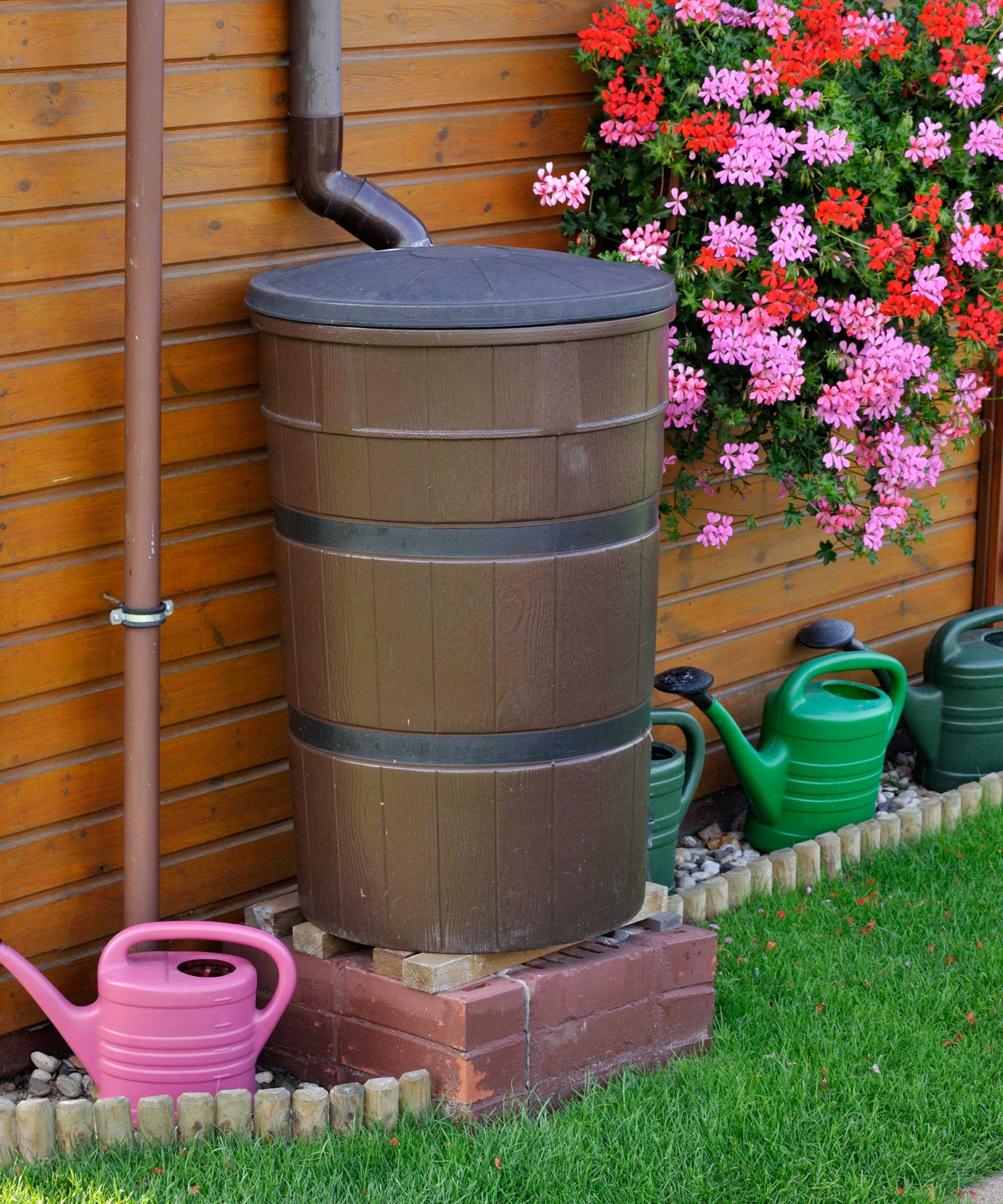
'Installing a rainwater harvesting system in your garden could be a great investment for your sustainable home,' says Abhay Gupta. 'These eco-friendly gadgets collect rainwater from rooftops and store it in water tanks so the collected water can be used in watering plants, washing cars, or even flushing toilets.'
In the average home, a basic rainwater harvesting system can collect thousands of gallons of water annually. You can find these systems online or make a DIY water collection bin by connecting a downspout to a large container fitted with a lid to prevent the water from being contaminated. You could also install a tap at the base of the container or incorporate a lift-up lid for convenient access to the collected water.
FCMP Outdoor RC4000-BRN 50-Gallon | $127.27 from Amazon
This barrel has a screen filter on the top to prevent debris from entering the barrel, reducing the need for cleaning. It has spigots on the side for connecting multiple barrels, which can be ideal if you live in an area with heavy rainfall.
7. Washing machine microfiber filter
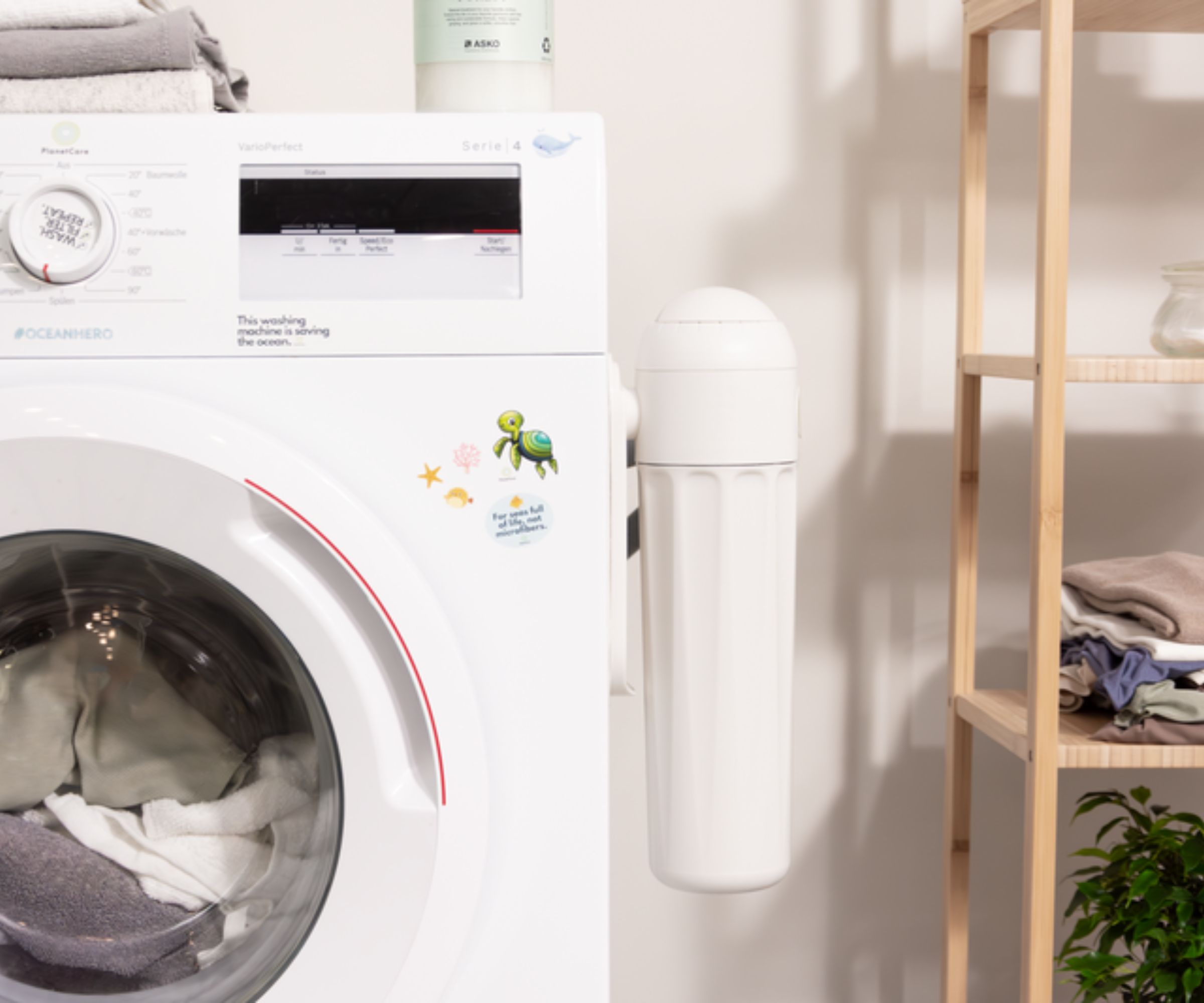
When clothes are washed, fibers called 'microplastics' are shed from synthetic fabrics like polyester and nylon, which enter the wastewater system and contribute to water pollution. Microfiber filters, which are attached to washing machines catch these tiny fibers during washing.
'With 35% of microplastic pollution stemming from washing machine wastewater, this solution not only safeguards our oceans but also enhances our personal well-being,' says Mojca Zupan, Founder and CEO of PlanetCare. 'Attaching to the side of your washing machine, it captures an incredible 98% of all microfibres from washing machine wastewater.
'Its ability to catch even the tiniest fibers down to 10 microns in length – smaller than a dust molecule – ensures a cleaner environment without compromising on style or convenience.'
Regularly cleaning or replacing the microfiber filter ensures its effectiveness in capturing microplastics and maintains the efficiency of your washing machine.
Microfibre Filter starter kit | $96.67 from PlanetCare
Crafted from recycled materials and designed to require no power, these filters set a new standard for eco-conscious home essentials. Made from recycled plastic, the filter requires no power. Once it is full, you simply return the cartridge to PlanetCare, who will upcycle the captured microplastics.
Combining these top gadgets with eco-friendly organizing tips can further contribute to creating a more sustainable home. They offer a practical solution to reduce our environmental footprint and promote a greener lifestyle.
Sign up to the Homes & Gardens newsletter
Design expertise in your inbox – from inspiring decorating ideas and beautiful celebrity homes to practical gardening advice and shopping round-ups.

Lola Houlton is a news writer for Homes & Gardens. She has been writing content for Future PLC for the past six years, in particular Homes & Gardens, Real Homes and GardeningEtc. She writes on a broad range of subjects, including practical household advice, recipe articles, and product reviews, working closely with experts in their fields to cover everything from heating to home organization through to house plants. Lola is a graduate, who completed her degree in Psychology at the University of Sussex. She has also spent some time working at the BBC.
-
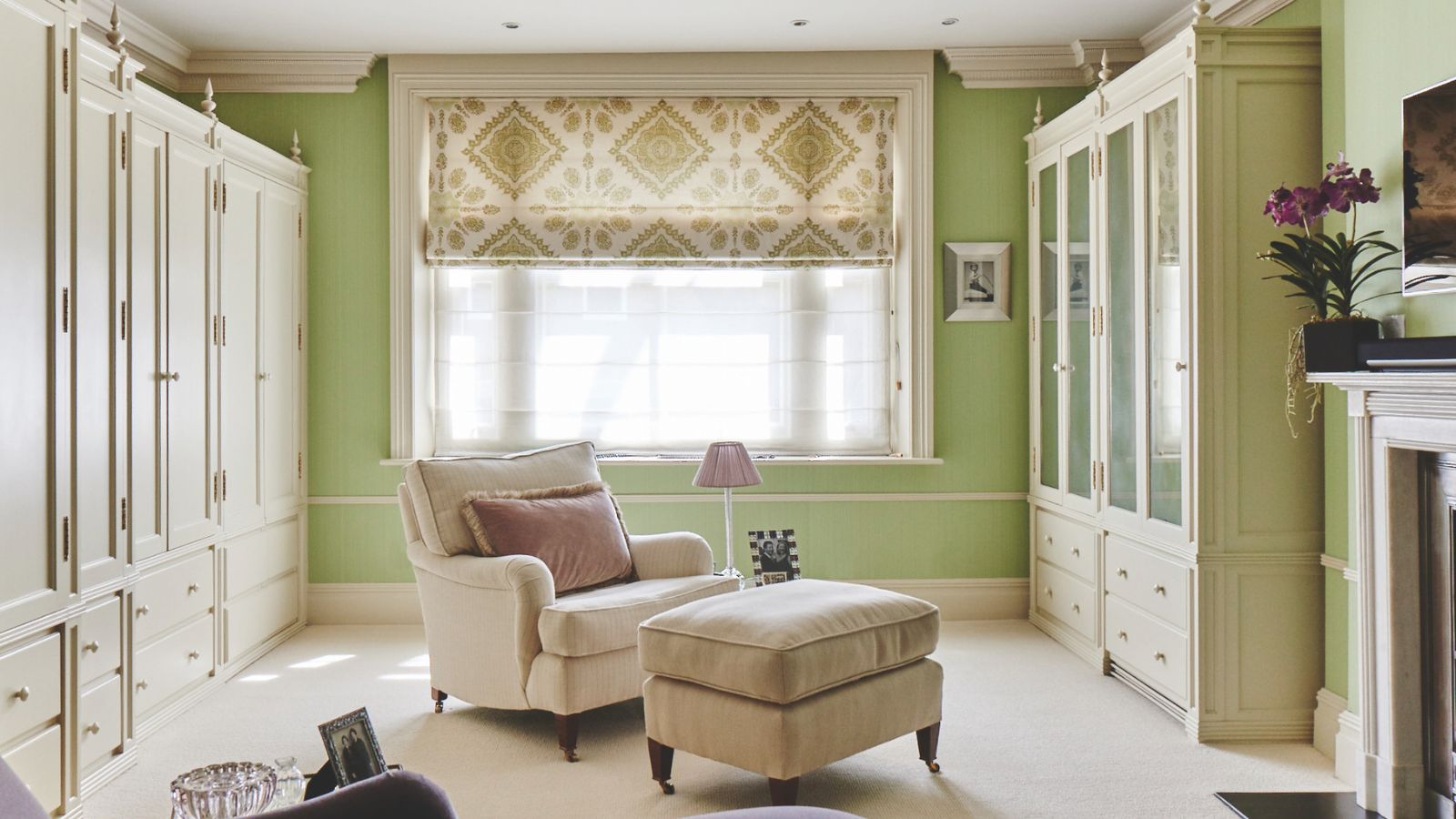 7 expert-approved painting hacks to minimize clean up – to make an already exhausting task easier
7 expert-approved painting hacks to minimize clean up – to make an already exhausting task easierAvoid a backbreaking clean-up after your next painting project with advice from the professionals
By Chiana Dickson
-
 Gwyneth Paltrow's quiet luxury kitchen is so beautiful, we almost overlooked her ultra-smart cabinets – they make the use of 'every inch' of storage space
Gwyneth Paltrow's quiet luxury kitchen is so beautiful, we almost overlooked her ultra-smart cabinets – they make the use of 'every inch' of storage spaceThe Goop founder makes use of dead space in her kitchen with customized cabinetry that reaches to the ceiling, providing ample storage
By Hannah Ziegler
